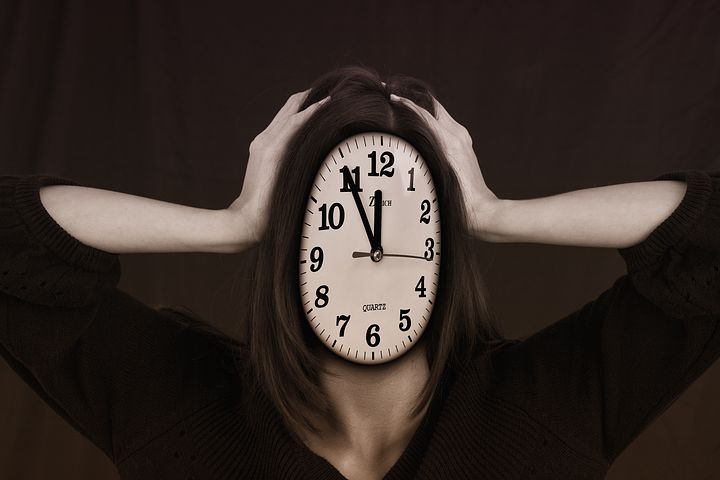5 Signs You’re Dealing With Burnout

Working endlessly task after task, while having no rest or a personal slot time for other activities is a good sign you have reached the point of burnout. Anyone who is continually exposed to high levels of stress is vulnerable to burnout, but overachievers are more often bumped heads with this condition.
Burnout is a state of physical and emotional exhaustion characterized by a heavy work schedule, disorderly sleep cycle, and a dismissive attitude towards work. Your social relationships may fade in enrichment, and by so, you are hindered in developing your full potential in your work performances.
In-depth, burnout can mostly be categorized into two compartments: physical and emotional exhaustion. Physical exhaustion is experienced when you strain your ability to keep working than your body’s ability to sustain health when it passes the ‘stop sign’ for a health check. Emotional depletion is experienced when you are in denial of doing things aside from work that make you feel better: walking, hanging out with friends, painting, meditating, and so much more.
From lacking daily time off, you are giving yourself little to no coping mechanisms for stress, and the lack of energy to work and think productively. It is to say life is not about chasing a carrot in the front of your eyes – chasing after momentary satisfaction, rather a life is about retaining energy to execute a successful plan.
The signs of burnout are hard to spot and often overlooked, so here are 5 signs indicating you are dealing with burnout to be aware of:
1. Exhaustion
In the earliest stage of burnout, fatigue occurs physically. Fatigue includes but is not limited to:
- Headaches
- Loss of appetite
- Chronic tiredness or sleepiness
- Dizziness
- Muscle weakness
- Slowed reflexes
In the latter stages, being emotionally drained may lead to the following states:
- Lost motivation
- Lack of concentration
- Impaired decision-making or judgements
- Short-term memory problems
- Disconnected thoughts
- Moodiness
Prolonged fatigue and emotional depletion are harmful to the wellness and functionality of a human being. It can also cause depression.
When you experience burnout, a foggy mind is inevitable, your thoughts don’t seem to make sense because you are feeling disconnected emotionally. Your emotions tend to change and you can get ticked off at the smallest things. You can also be sad that you’re not being as productive as before.
2. Reduced performance
Reduced performance is the combination of the lack of concentration and creativity. You may notice when you work, your mind starts to drift away and your body feels heavy. Physical health and emotional health are linked; what your body feels is reflected in what you feel and mentally want. When your body feels heavy, it is a sign your mind is trying to communicate to you that work might not be the best healing at the moment. It means you need to rest.
Failing test grades, forgetting to follow safe travel guidelines while driving, or brainstorming with little to nothing come to mind are examples of reduced performance.
3. Denial
When you are surrounded with fear, you pretend to be strong in order to overcome the fear at hand. Similarly, when you are exhausted, sometimes, you convince yourself to keep working to push back the immediate needs you have. The further you push back your needs, the worse you will feel to become.
It is necessary to not be or stay in denial once you acknowledge that your body needs resting or your mind needs clearing. When taking a rain check with your needs, you are pushing yourself to complete a short-term result, and the result might end up less than you expected. It is important to not add more constant demands to the stress you had at work. What better to do is to answer the calling of your needs, this will clear a better route for your well-being and give you an expected result of work.

4. Cynicism and Isolationism
Just like when you experienced food poisoning, the ‘yuck’ feeling when you encounter the food again makes you feel sick. The same applies to work; when work makes you feel sick emotionally and physically, you most likely want to avoid doing it. Although this is a normal reaction, this destroys the basis of a work-life balance.
The intensity of burnout causes you to feel numb inside out, which makes you distance yourself from work. In response, you take actions such as isolating yourself from communication with other people because of the lack of enthusiasm, and/or spending too much time on things that guilt trip you outside of work while ignoring the coming deadlines.
5. Uninterested in things you used to enjoy
Everyone has hobbies whether you found yours or not quite yet. The things that you enjoy doing are no longer enjoyable when they are under the pressure of time. If work is the buns to a sandwich, you need adequate rest which is the fillings of the sandwich in order to make your meal – your life – enjoyable.
Even if your schedule is packed, you must try to make time for necessary rest to perform better as a result. We are not superhumans. We are humans.
The Difference
What is the difference between exhaustion, fatigue, and burnout?
It all comes down to how long and what it takes to recover from these symptoms.
Exhaustion is more short-lived, therefore it can be treated by activities such as a good night’s sleep and time to unwind in the park.
Fatigue is more serious because it may take several weeks or months to overcome. Constant efforts like sleeping on time, eating nutritious meals, and exercising restore wellbeing.
On the other hand, burnout varies from the intensity of stress in your environment, the length it takes to overcome, and the quality of actions needed to relieve that symptom. Some people must change their workplace, some people just need to develop a better schedule, and some just need to not push themselves to perfectionism.
A Positive Note
While feeling burnt out needs more effort to change its wheels in the right direction, it is possible to reverse.
To prevent burnout, you need to get out of denial and admit you need a rest. Your body needs to refuel by doing something you like. It also needs some exercises if you’ve been working too much. Besides, exercises give you dopamine – a feel-good chemical – which is great.
The most important thing to prevent from having burnout again is to be mindful that your body has limits. Burnout usually takes a while to recover (days or even weeks), so make an effort to avoid that if you sense any signs of burnout.
Ask yourself: Am I doing too much?
It is best to take more breaks before it gets too bad. Fill up your energy tank back to full before you work again because pushing yourself to do anything with little energy is a recipe for a disaster.
References
Scott, E. (2020, March 20). How to Tell You Have Reached the Point of Burnout. Retrieved January 22, 2021, from https://www.verywellmind.com/stress-and-burnout-symptoms-and-causes-3144516
Fraga, J. (2019, May 18). How to Identify and Prevent Burnout – Healthline. Retrieved January 22, 2021, from https://www.healthline.com/health/tips-for-identifying-and-preventing-burnout#TOC_TITLE_HDR_1
Better Health Channel. (2015, June). Fatigue – Better Health Channel. Retrieved January 22, 2021, from https://www.betterhealth.vic.gov.au/health/conditionsandtreatments/fatigue#lp-h-0
WellteQ. (2019, October 15). Fatigue, Burnout and Exhaustion – What’s The Difference? Retrieved January 22, 2021, from https://www.wellteq.co/fatigue-burnout-exhaustion/#:~:text=Both%20fatigue%20and%20burnout%20conditions,of%20emotional%20stress%20and%20frustration



Responses